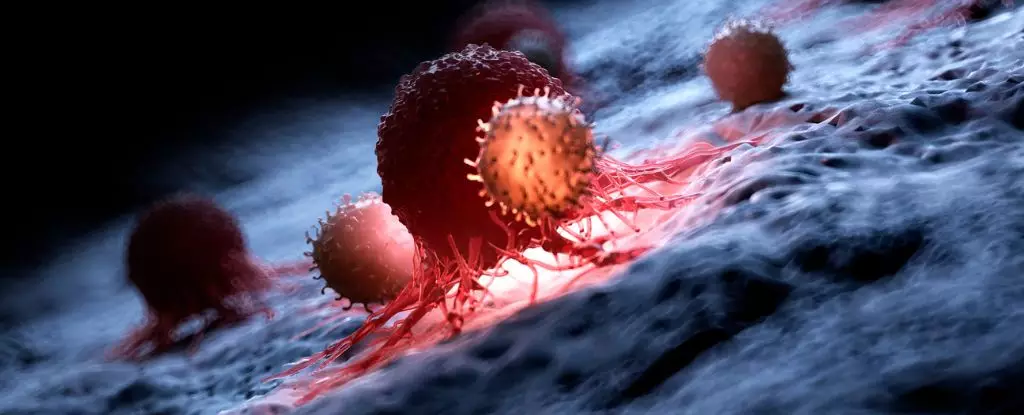Scientists have made a groundbreaking discovery in cancer immunotherapy, finding a way to dismantle the barriers that prevent effective drug treatments from reaching the heart of cancerous tumors. This newfound strategy involves triggering a ‘timer bomb’ on the cells that line a tumor’s associated blood vessels, thereby opening the pathway for engineered immune cells to combat the cancer. The key to this method lies in activating a ‘death’ receptor called Fas, which initiates programmed cell death when triggered by the right antibody. This article explores the recent advancements made by researchers at the University of California, Davis (UCD) and Indiana University, shedding light on the potential therapeutic path that lies ahead.
Previously overlooked in cancer immunotherapy, Fas has emerged as a crucial player in targeted cancer treatments. Despite the lack of Fas antibodies that have advanced to clinical trials, scientists at UCD have successfully identified specific antibodies that trigger self-implosion when attached to Fas receptors. By unlocking Fas, these antibodies act as a kill switch for the cell, paving the way for other cancer therapies to access their targets within the tumor.
One such cancer therapy that benefits greatly from the opening of tumor access is CAR-T therapy. This revolutionary treatment involves programming a person’s own white blood cells, known as T-cells, to target and attack cancer cells. However, these tailored immune cells often face difficulty infiltrating tumors due to the presence of bystander cells lacking recognizable antigens. Consequently, CAR-T therapy has primarily been effective in treating blood cancers or leukemia, but struggles to achieve consistent success against solid tumors.
Immunologist Jogender Tushir-Singh explains that solid tumors are often referred to as “cold tumors” because immune cells cannot penetrate their microenvironments effectively. The success of CAR-T therapy, therefore, relies on creating spaces within the tumor for T cells to infiltrate. Through their experiments at UCD, scientists have developed two engineered antibodies that have proven highly effective in causing bystander cells to self-implode by attaching to Fas receptors. These antibodies have shown promise in ovarian cancer models and various other tumor cell lines, indicating their potential in targeting solid tumors.
One of the notable findings from the UCD experiments is the ability of the developed Fas ligand to engage two critical parts of the Fas receptor. These receptor parts hold significant potential as future drug targets, with the prospect of engineering CAR-T cells to target these parts on bystander cells. By effectively targeting these receptor parts, CAR-T therapy could become significantly more effective against tumors. However, Tushir-Singh emphasizes the importance of understanding a patient’s Fas status and the mutations surrounding the discovered epitope before considering CAR-T therapy, as this information is a crucial marker for evaluating the efficacy of bystander treatment.
The Way Forward
The discovery of this innovative strategy to detonate the doors that hinder drug treatments from reaching cancerous tumors marks a major breakthrough in cancer immunotherapy. By leveraging the power of Fas, scientists are providing new hope for treating solid tumors and enhancing the effectiveness of CAR-T therapy. While further research is necessary to fully understand the potential of this therapeutic approach, the identification of specific antibodies and critical receptor parts unveils a promising path forward in the fight against cancer.
The discovery of Fas as a target in cancer immunotherapy reflects a significant shift in the field. The development of antibodies that trigger self-implosion in the presence of Fas receptors opens up a range of possibilities for effective tumor treatment. By exploring the potential of engineering CAR-T cells to target bystander cells, the therapeutic efficacy of CAR-T therapy against solid tumors could potentially be transformed. As researchers continue to delve into the complexities of Fas and its interactions, personalized medicine tailored to an individual’s Fas status may become a key determinant for successful cancer treatment. With each innovation, science gets one step closer to turning the tide against cancer and offering new hope to patients around the world.


Leave a Reply